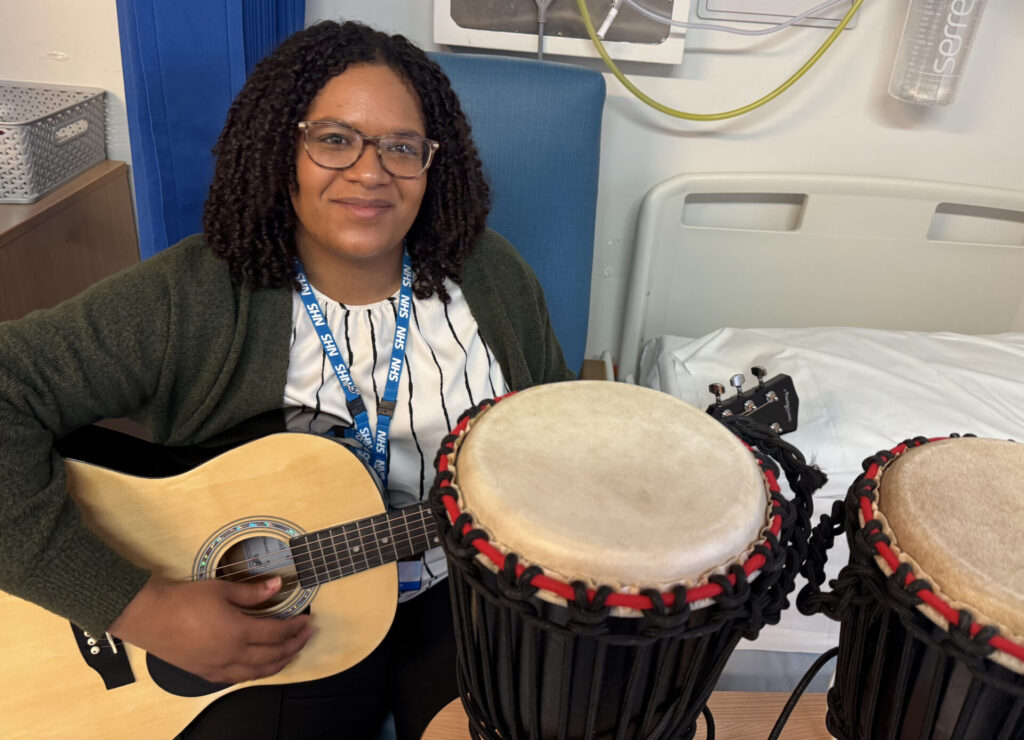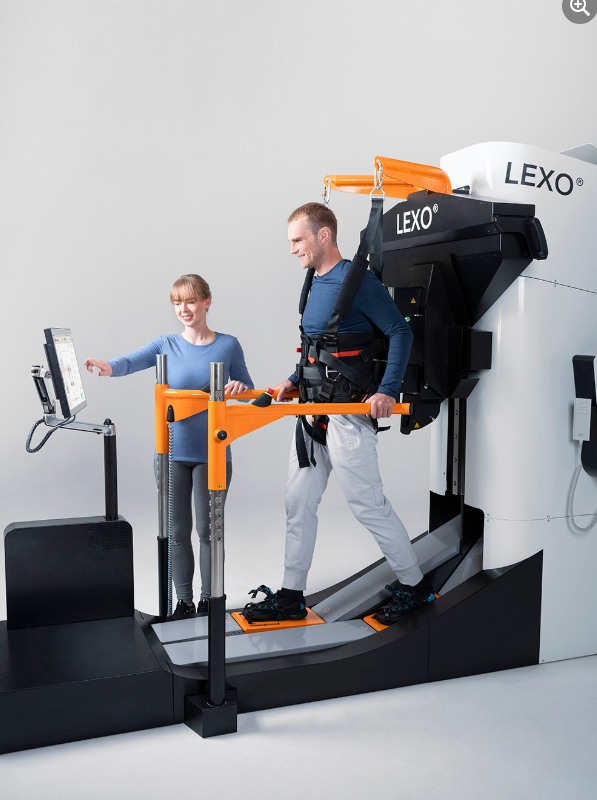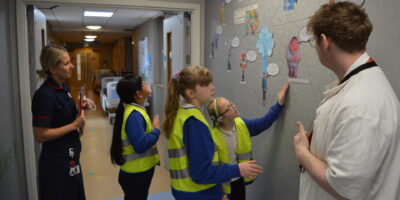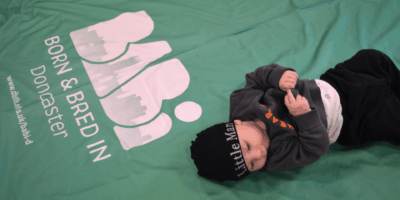Funded by the Doncaster and Bassetlaw Teaching Hospitals Charity, the service will be led by newly appointed Neurologic Music Therapist, Abbie Jean-Baptiste, whose work is set to inspire hope and progress among patients.
Stroke remains one of the leading causes of disability in the UK, with one in four individuals expected to experience a stroke in their lifetime.
Music Therapy is an established psychological and clinical intervention designed to help individuals affected by illness, injury, or disability. It meets psychological, emotional, cognitive, physical, and social needs through music-based activities tailored to each patient’s goals.

As a recognised Allied Health Profession (AHP), Music Therapy engages the brain’s plasticity—its ability to adapt and form new neural connections—to aid recovery.
Techniques used by Music Therapy include singing for aphasia, a condition that affects a person’s ability to communicate, often caused by a stroke or brain injury.
Singing supports speech and language recovery by leveraging the brain’s ability to process music differently from spoken language, using methods like Melodic Intonation Therapy (MIT), which pairs exaggerated rhythm and melody with phrases to stimulate language production. This approach helps patients improve word retrieval and fluency.
Other techniques include breathing exercises to improve vocal clarity, instrument playing to address motor skills and inattention, music for walking, and group therapy for processing life changes after experiencing a stroke.
Abbie joined the Trust in November, bringing her passion and expertise in Music Therapy to the pilot programme. She said about her new role: “I am so excited to have this fantastic opportunity! Music has so many healing elements, and I’m grateful for the chance to advocate for its benefits. When you attend Music Therapy sessions, you can expect a non-judgmental, safe space to explore your thoughts and feelings.
“The biggest myth around music therapy is that you need to sing or play an instrument—don’t worry, you don’t need any special talent. My role is to help you regain speech, strengthen muscles, and walk with more ease.
“Functional goals are at the heart of each session, whether we’re singing to improve speech, playing instruments to build motor skills, or simply using music as a tool to enhance your recovery.
“I want to help you achieve your goals and use music to drive those changes. Yes, it’s enjoyable because we integrate rehab with music, but it’s also incredibly effective.”
Shaping the future of stroke recovery, the Trust has also secured charitable funding through the Fred and Ann Green Legacy for several new pioneering machines that will aid in the upper and lower limb mobility of stroke patients, supporting exercises that accelerate recovery.
The machines will be based within a new gymnasium to be built as part of a £1.4 million investment in the stroke rehabilitation service at Montagu Hospital, and set to open in Summer 2025.

Dr Peter Anderton, Stroke Consultant at DBTH, said: “The new robotic therapy suite will be a first for the NHS, utilising technology previously restricted to patients receiving private healthcare. Alongside this technology, and the newly acquired Music Therapy, the Stroke Rehabilitation service offers patients the best care available and is heading towards becoming a Hub of Excellence throughout the region.”
“Our aspiration is to collaborate with colleagues from other Stroke services in the South Yorkshire area, allowing this facility to help Stroke survivors from a wider catchment to better achieve their recovery goals.”
This development follows DBTH being named as one of only four NHS sites in England chosen to trial a new genetic testing service for stroke patients. This pilot, run by NICE and NHS England, will explore whether Clopidogrel, a common medication used to reduce the risk of further strokes, is the best treatment for patients based on their genetic makeup.
The trial will use a test to check for changes in the CYP2C19 gene, which can affect how well the body processes Clopidogrel. Around 30% of people in the UK, and even more in some ethnic groups, have a variation in this gene that makes the medication less effective.
By identifying these individuals, doctors can prescribe alternative treatments to help prevent future strokes.
For inquiries on supporting DBTH and contributing to future healthcare innovations, please contact the Fundraising and Communications Team at 01302 644244 or dbth.charity@nhs.net



